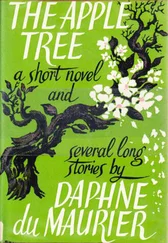Frank Aubrey - The Devil-Tree of El Dorado - A Novel
Здесь есть возможность читать онлайн «Frank Aubrey - The Devil-Tree of El Dorado - A Novel» — ознакомительный отрывок электронной книги совершенно бесплатно, а после прочтения отрывка купить полную версию. В некоторых случаях можно слушать аудио, скачать через торрент в формате fb2 и присутствует краткое содержание. ISBN: , Жанр: foreign_antique, foreign_prose, на английском языке. Описание произведения, (предисловие) а так же отзывы посетителей доступны на портале библиотеки ЛибКат.
- Название:The Devil-Tree of El Dorado: A Novel
- Автор:
- Жанр:
- Год:неизвестен
- ISBN:http://www.gutenberg.org/ebooks/43944
- Рейтинг книги:3 / 5. Голосов: 1
-
Избранное:Добавить в избранное
- Отзывы:
-
Ваша оценка:
- 60
- 1
- 2
- 3
- 4
- 5
The Devil-Tree of El Dorado: A Novel: краткое содержание, описание и аннотация
Предлагаем к чтению аннотацию, описание, краткое содержание или предисловие (зависит от того, что написал сам автор книги «The Devil-Tree of El Dorado: A Novel»). Если вы не нашли необходимую информацию о книге — напишите в комментариях, мы постараемся отыскать её.
The Devil-Tree of El Dorado: A Novel — читать онлайн ознакомительный отрывок
Ниже представлен текст книги, разбитый по страницам. Система сохранения места последней прочитанной страницы, позволяет с удобством читать онлайн бесплатно книгу «The Devil-Tree of El Dorado: A Novel», без необходимости каждый раз заново искать на чём Вы остановились. Поставьте закладку, и сможете в любой момент перейти на страницу, на которой закончили чтение.
Интервал:
Закладка:
For two loving hearts left behind the separation was a trying one. For a few days Mrs. Templemore stayed on at ‘Meldona’ with Maud, and the presence of Dr. Lorien and the vivacious Harry helped to cheer them somewhat; but, when the doctor and his son started for Rio, the others returned sadly to the routine of their everyday life, with many anxious speculations and forebodings concerning the fortunes of the two explorers.
CHAPTER III
THE JOURNEY FROM THE COAST
The greater part of the interior of British Guiana consists of dense forests which are mostly unexplored. No roads traverse them, and but little would be known of the savannas, or open grassy plains, and the mountains that lie beyond – and they would indeed be inaccessible – were it not for the many wide rivers by which the forests are intersected. These form the only means of communication between the coast and the interior at the present day; and so vast is the extent of territory covered with forest growth that it is probable many years will elapse before any road communication is opened up between the sea and the open country lying beyond the woods.
Of these vast forests little – or rather practically nothing – is known save what can be seen of them from the rivers by those voyaging to and fro in canoes. There are a limited number of spots at which the Indians of the savannas come to the banks of the rivers to launch their canoes when journeying to the coast; and to reach these places they have what are known as ‘Indian paths’ through the intervening woods. These so-called paths are, for the most part, of such a character, however, that only Indians accustomed to them can find their way by them. Any white man who should venture to trust himself alone in them would inevitably get quickly and hopelessly lost. Hence – save for a few miles near the line of coast – there are, as yet, absolutely no roads in the country.
Naturally, under such conditions, the forest scenery is of the wildest imaginable character, and its flora and fauna flourish unchecked in the utmost luxuriance of tropical savage life; for the country lies but a few degrees from the equator, and is far more sparsely populated than even the surrounding tropical regions of Brazil and Venezuela.
Fortunately, however, for those who for any reason have occasion to traverse this wild region, there is no lack of water-ways. Several grand rivers of great breadth lead from the coast in different directions, most of them being navigable (for canoes and small boats) for great distances, leaving only comparatively short stretches of forest land to be crossed by travellers desiring to reach the open plains and hills.
Of these rivers, the Essequibo is one of the finest, and it was by this route that the two friends, Elwood and Templemore, set out, under Matava’s guidance, to reach their destination. From this river they branched off into one of its affluents, the Potaro, noted for its wonderful waterfall, the Kaieteur, which they visited en route . Here their canoes were left and exchanged for lighter ones, hired from the Ackawoi Indians, who live at a little distance above the fall; their stores and camp equipage being carried round. So far the journey had been uneventful, save for a little excitement in passing the various cataracts and rapids; but the two young men knew their way fairly well thus far, having visited the Kaieteur with Matava some years before.
When, however, the journey was resumed above the Kaieteur, the route was new to them; and, among the first things they noticed, were the alligators with which the river abounded. In the Essequibo they had seen none, and not many below the fall; but from this point, as far as they ascended the river, they saw them continually. Once they had a narrow escape. They were making arrangements for camping on the bank, and were nearing the shore in the last of the canoes, when a tremendous blow and a great splash overturned the boat, and they found themselves struggling in the stream. An alligator had struck the canoe a blow with its tail and upset it. Fortunately, however, it was in shallow water; and the Indians, seeing how matters were, made a great splashing, and thus frightened away the reptile. The contents of the canoe were partly recovered, not without difficulty; but some were damaged by the water.
As they proceeded up the river, the rapids and cataracts became more frequent, and the negotiation of them more difficult, till they reached a spot where further navigation was impossible, and they had to take to the forest, their stores and baggage being henceforward carried by the Indians.
This marked the commencement of the really arduous part of the journey. So long as the stores were carried in the boats, the Indians had been cheerful and docile, and easy to manage. But now their work was harder, and food was scarcer – for game is difficult to shoot in the forest. Then, after two or three days, the gloom of the woods began to have an evident effect upon their spirits; they first became depressed, and then began to grumble. This would not have been of so much consequence, perhaps, but that Matava became apprehensive that they might desert. They were not people of his tribe, it seemed; they had come with Dr. Lorien from a different district; and when they began to understand that the eventual destination was Roraima, they became still more depressed.
All the Indian tribes who have heard of Roraima, in any way, have the same superstitious dread of it; and those now with the two young men were evidently not exceptional in this respect. Templemore and Elwood began to feel anxious and, to make matters worse, food ran short for the Indians. The latter live chiefly on the native food, a kind of bread called cassava, and, of this, a good deal of what they had brought with them had been lost or spoiled by the upsetting of the canoe.
In consequence, Matava advised that they should interrupt their direct journey to turn aside to an Indian settlement that he knew of, about a day’s journey off the route they were pursuing; there they would be able to replenish their stores, he thought; and to this course a reluctant assent was given by the two friends.
It turned out to be more than a day’s journey, however; but they reached the place on the second day. It was called Karalang; there were not more than a dozen huts, and the people at first said that they had no food to spare; but eventually promised to procure some if the travellers would wait a few days; and this they were perforce compelled to do.
This village was situated on a hill in a piece of open country in the midst of the great forest; and, during their enforced rest, the two friends were enabled to engage in a little hunting, and to see more of the wild life of the woods than they had seen before.
The first thing they did on arrival was to procure a couple of fowls for cooking, of which there were plenty in the village. But these were of no use as food for the Indians, who never eat them. Throughout the country this is everywhere the case; the Indians keep fowls, yet never eat them; and it is said that, were it not for the vampire bats and tiger-cats, these would increase beyond all reason. Though, however, they object to fowls as a diet, they have no dislike to fish, and they were not long in discovering that there were some in a stream that ran near the village; and a supply was caught by their method of poisoning the fish in such a way that they float on top of the water as if dead, but are nevertheless palatable and wholesome as food. The poison is prepared from a root.
Amongst the miscellaneous stores the two had brought they had a liberal supply of firearms – five Winchester rifles, half-a-dozen revolvers and two guns, each with double barrels, one for shot and the other for ball. The extra weapons were in case of loss or accident, and Templemore had a good stock of tobacco, for he never felt happy for long together without his pipe.
Читать дальшеИнтервал:
Закладка:
Похожие книги на «The Devil-Tree of El Dorado: A Novel»
Представляем Вашему вниманию похожие книги на «The Devil-Tree of El Dorado: A Novel» списком для выбора. Мы отобрали схожую по названию и смыслу литературу в надежде предоставить читателям больше вариантов отыскать новые, интересные, ещё непрочитанные произведения.
Обсуждение, отзывы о книге «The Devil-Tree of El Dorado: A Novel» и просто собственные мнения читателей. Оставьте ваши комментарии, напишите, что Вы думаете о произведении, его смысле или главных героях. Укажите что конкретно понравилось, а что нет, и почему Вы так считаете.












